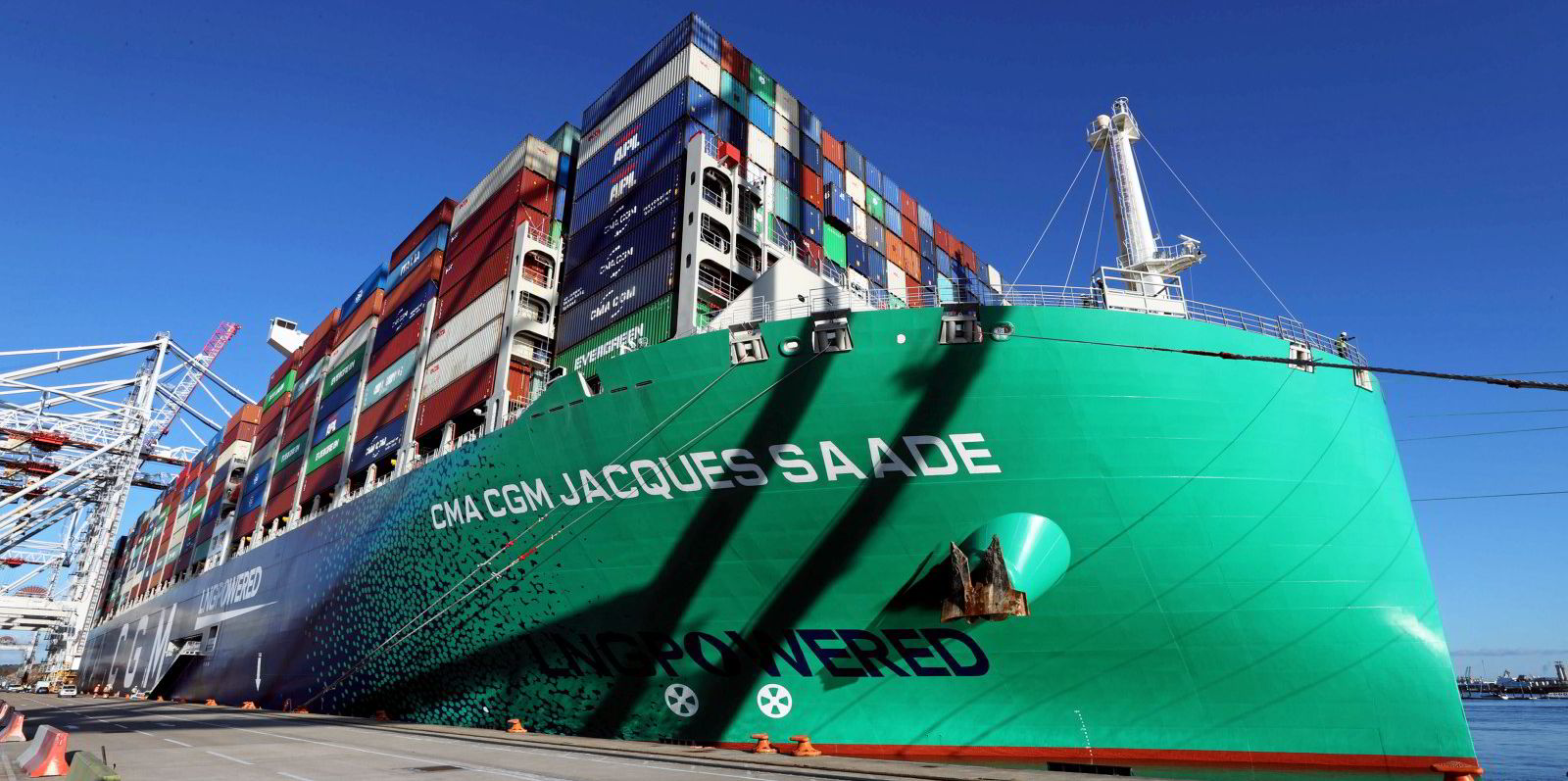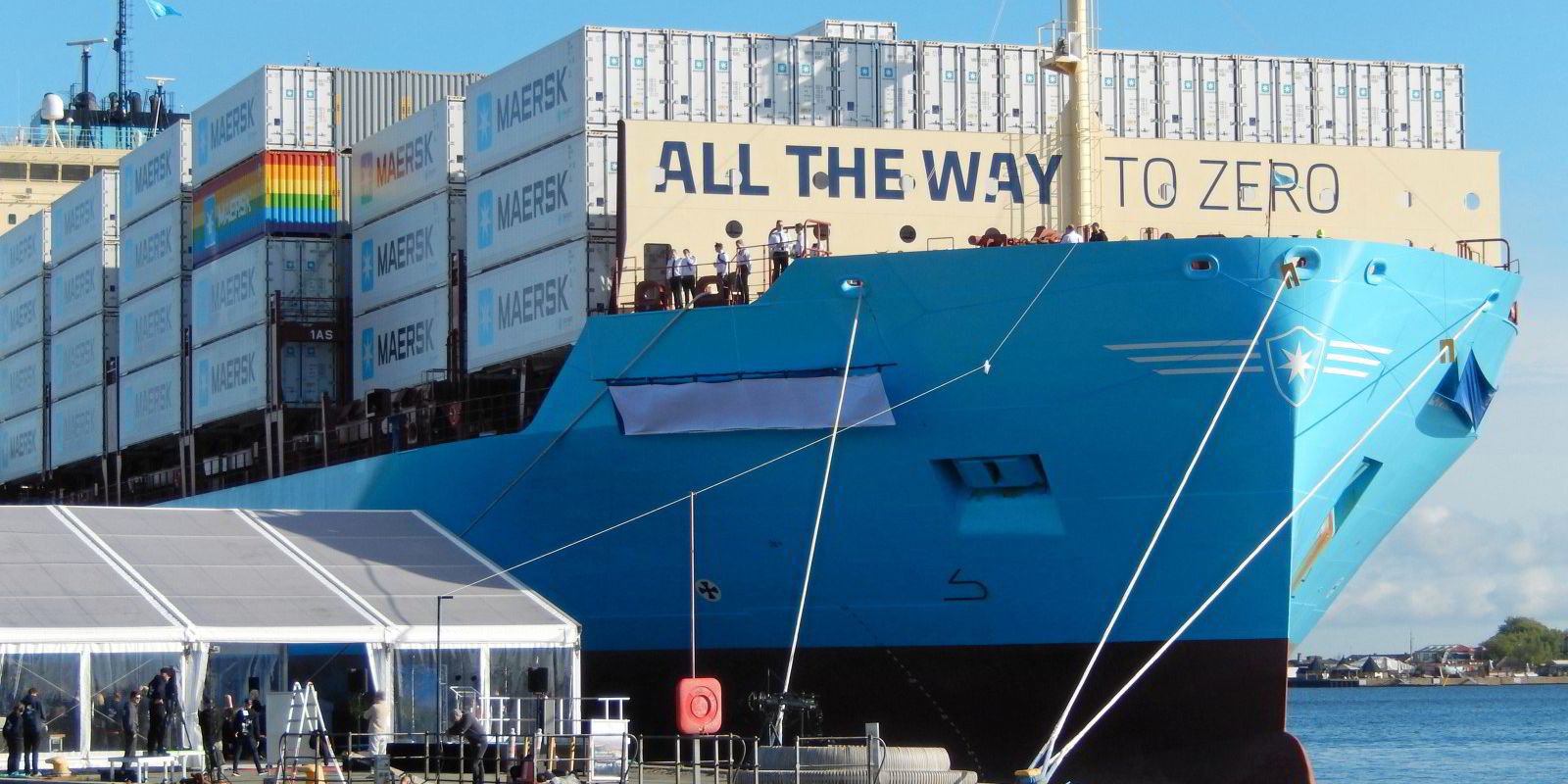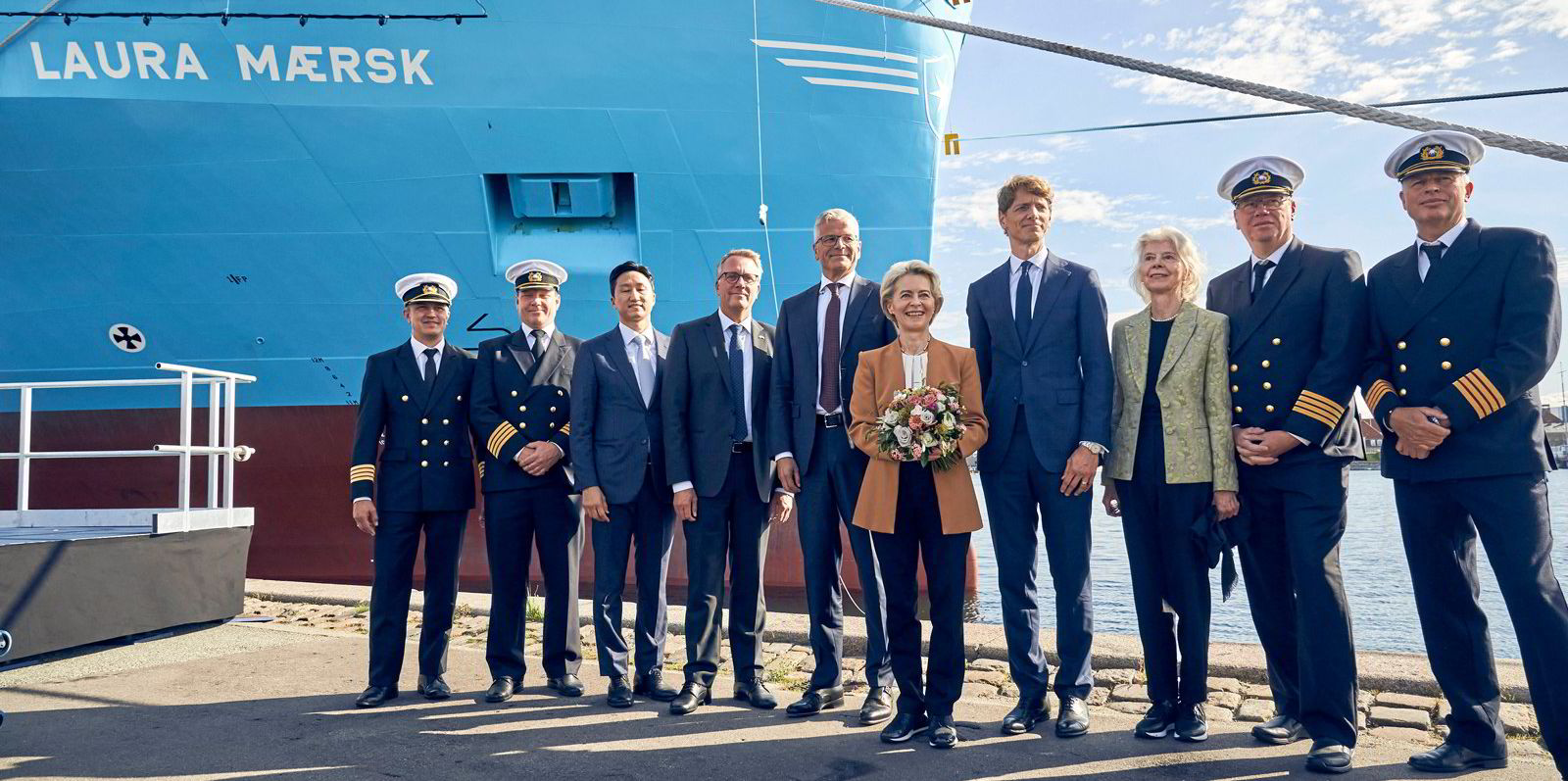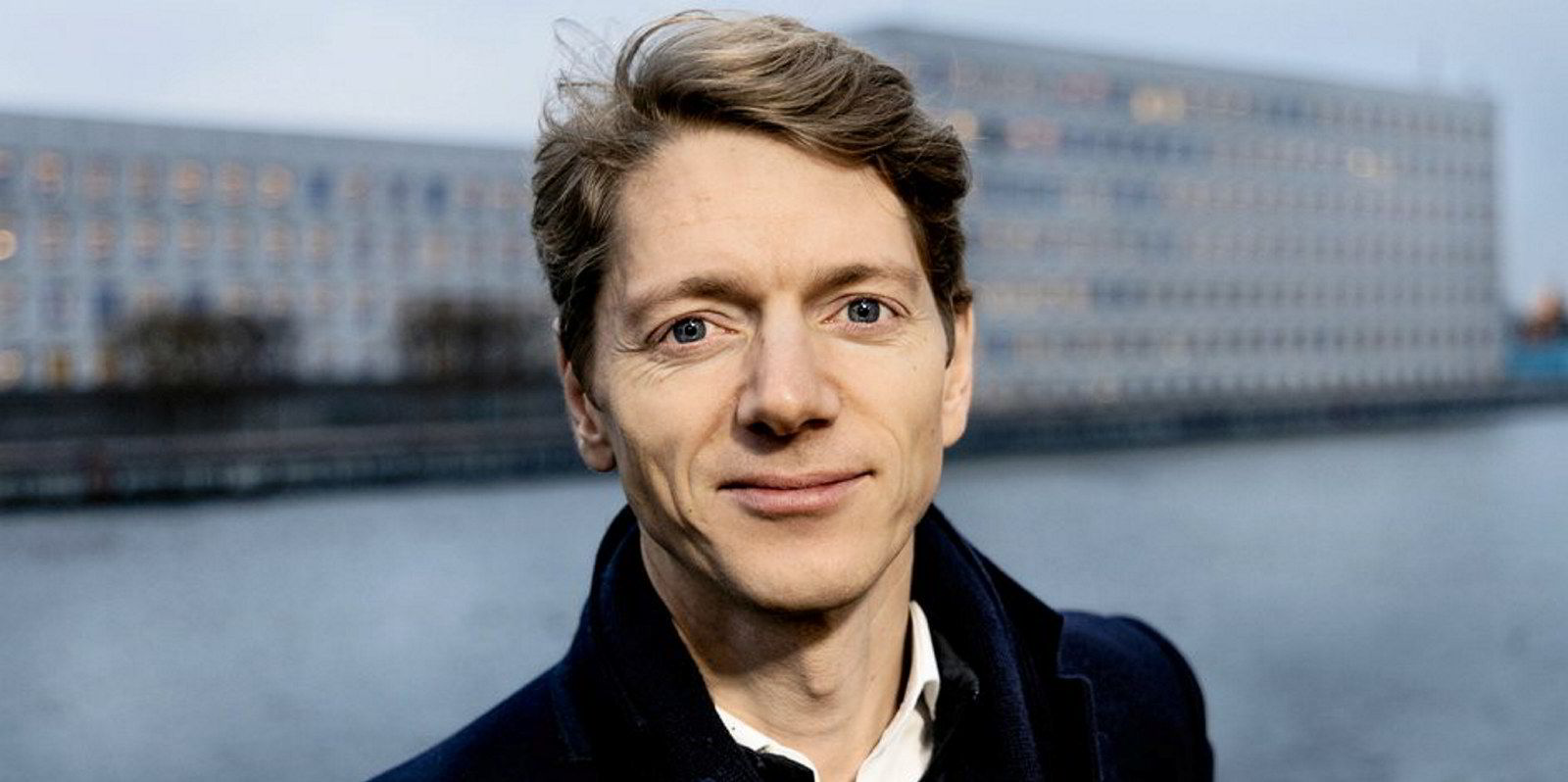AP Moller-Maersk and CMA CGM plan to team up in several areas to decarbonise shipping.
Maersk was a pioneer in developing methanol fuel, while its French container shipping rival was a first mover in the gas sector.
The cooperation aims to develop alternative greener fuels for container vessel propulsion.
LNG and methanol are deemed the most mature existing solutions, but the two liner operators expect the future mix will include other streams that should be developed in the coming years.
Both companies have identified scalable solutions that can create an impact in this decade. By cooperating, they expect joint action “will help accelerate the green transition in shipping, learning from each other to go further and faster”.
Maersk has been ordering vessels that can be operated on biomethanol and e-methanol. Last Thursday in Copenhagen, the Danish carrier christened the 2,100-teu Laura Maersk (built 2023), the world’s first dual-fuel methanol container ship.
“Maersk wants to accelerate the green transition in shipping and logistics, and to do so, we need strong involvement from partners across the industry,” said chief executive Vincent Clerc.
“We are pleased to have an ally in CMA CGM, and it’s a testament that when we united through determined efforts and partnerships, a tangible and optimistic path toward a sustainable future emerges.”
CMA CGM chief executive Rodolphe Saade added: “This partnership is a milestone for the decarbonisation of our industry.”
His company has been ordering LNG-propelled vessels that can also be operated on biomethane and e-methane as a green equivalent of conventional LNG and has placed orders for vessels that can operate on biomethanol and e-methanol.
“By combining the know-how and the expertise of two shipping leaders, we will accelerate the development of new solutions and technologies, enabling our industry to reach its CO2 reduction targets. We are looking forward to being joined by other companies,” Saade said.

Maersk and CMA CGM have already identified several areas in which they can work together on alternative greener fuels for container vessel propulsion.
That includes developing high standards for alternative sustainable, green fuels, such as the analysis of full life-cycle and related greenhouse gases.
The lines also plan to work on setting the framework for the mass production of green methane and green methanol.
The cooperation extends to developing and maintaining safety and bunkering standards for the operation of green methanol vessels, as well as accelerating port readiness for bunkering and supply of biomethanol and e-methanol at key ports around the world.
The duo will explore joint research and development on other components of the net zero solution, including alternative fuels, such as ammonia, and innovation technology for their ships.
Maersk and CMA CGM are also in agreement on the fundamental role of regulation in decarbonising the sector.
They support the outcome of the recent Marine Environment Protection Committee at which the International Maritime Organization’s 2023 strategy for reducing greenhouse gas emissions from ships was adopted, with reinforced targets to tackle harmful emissions.
“Maersk and CMA CGM remain committed to jointly advocating for and encouraging IMO member states to adopt ambitious measures in their pursuit of the highest attainable goals,” the companies said.
“Regional measures such as the EU Fit for 55 and the Inflation Reduction Act in the US are welcomed by both companies to help stimulate demand for green shipping solutions.
“CMA CGM and Maersk affirm their readiness to collaboratively engage with regulatory stakeholders in establishing a robust and sustainable international regulatory greenhouse gas framework and invite other international shipping lines who so wish to join them in this cooperation with the regulatory institutions.
“Such a framework is, in both our companies’ perspectives, a prerequisite to reducing carbon emissions for the shipping industry and securing a level playing field for a global business environment.”






